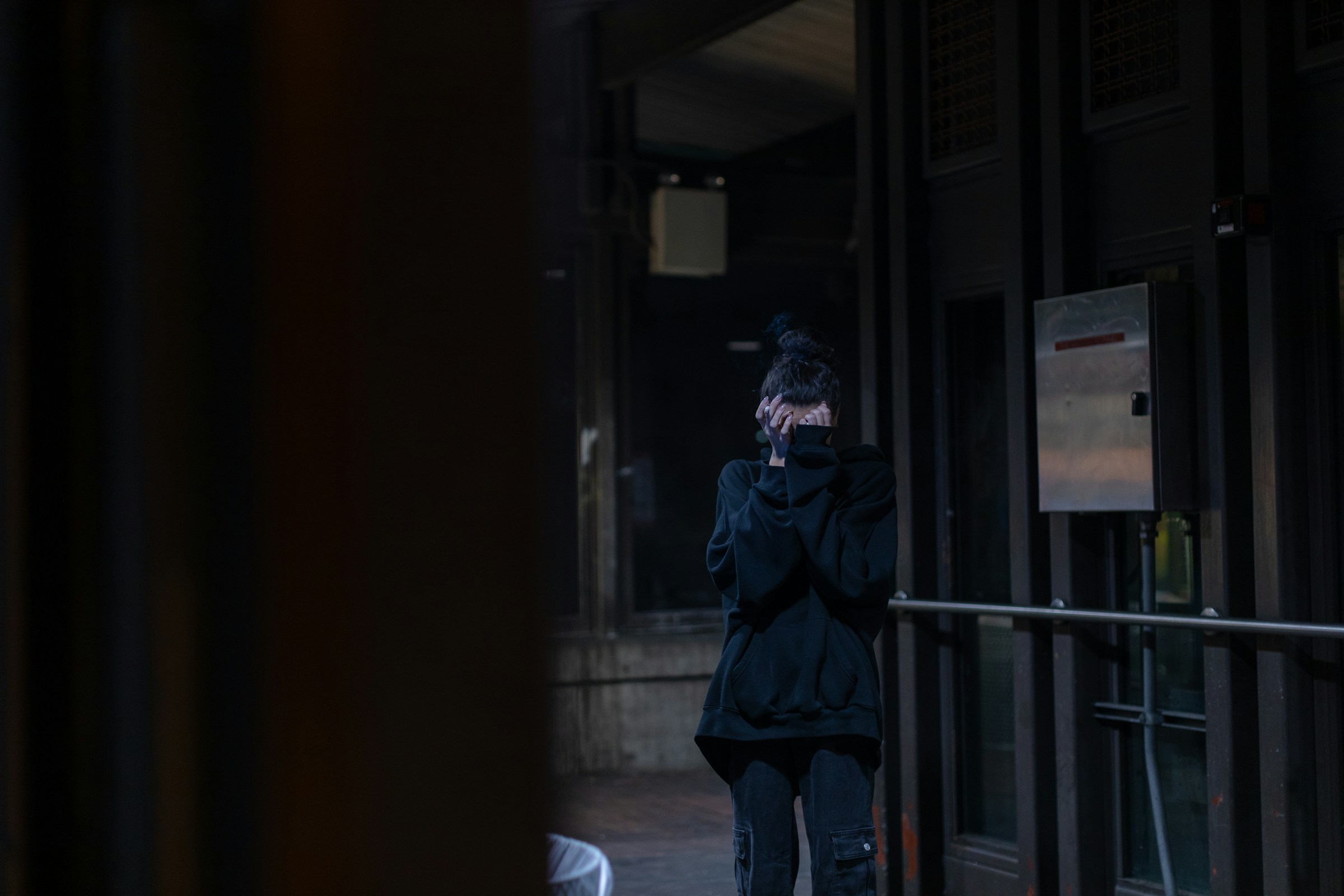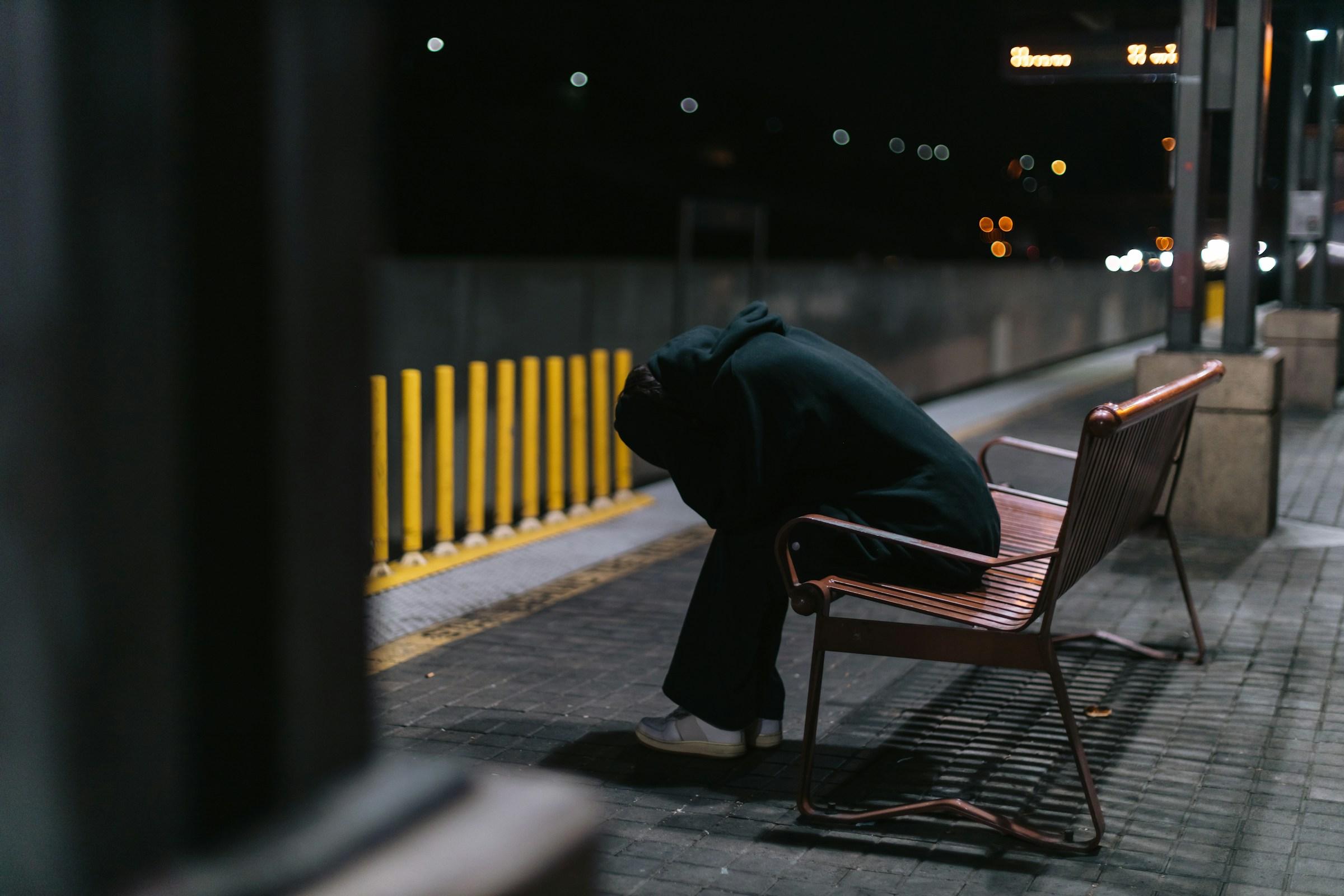The first signs are rarely dramatic. They arrive quietly, often in the way a room starts to feel louder than it looks, or how your favorite chair becomes a station for rehearsing conversations you have not had yet. You might notice you are tidying with unusual urgency before a small gathering, folding blankets with a precision that does not match the size of the moment. The space becomes a stage and your heart, the lighting rig. This is how social anxiety often begins to speak. It borrows a simple household task and turns it into a shield.
Mornings offer early clues. Coffee used to be a warm ritual, a soft start that belonged to you. On days with meetings or lunch plans, it may begin to taste like a countdown. The kitchen hums as usual, but your body is not humming with it. Your breath is shallow on the walk from sink to table. You read the same line twice and remember none of it. The mind wants to be present, yet it keeps drifting toward imagined scenes where your words wobble or stall. The home is still, but inside you is a hallway of swinging doors, each one marked what if.
Closets can tell a story too. Outfit decisions stretch longer than the commute itself. You change clothes not because of weather or plan, but because you are searching for a version of yourself that feels less noticeable. Color choices become softer. Silhouettes are chosen to blend. You are not chasing style. You are minimizing the surface area where attention might land. This is not vanity. It is a quiet negotiation with visibility.
Messages pile up in drafts. You type a simple reply, then backspace. You add a smiley, then remove it. You switch hello to hi to hey and back again, as if punctuation could predict how the day will receive you. Social anxiety often rehearses in text before it enters a room. It treats small responses like fragile glass. It stalls a send button that once felt light.
There is a sound the body makes when it is bracing. It is not audible, yet it changes how the chair accepts you. Your shoulders hover instead of resting. Your jaw holds the day like a handle. Even music feels different. Songs that usually open the windows of your mind now layer the air, pressing on the space instead of expanding it. You turn the volume down, then lower it again, then pause the track altogether. Silence becomes a refuge, not because you are calm, but because you are conserving.
Calendar blocks reveal another pattern. Invitations that would have been effortless last month become maybes. You tell yourself you are protecting time for rest, and sometimes that is true. Yet notice if the maybes are linked to rooms with people more than rooms with projects. Notice if your energy returns when plans are canceled, not after you have rested but exactly at the moment the decision lifts. Relief that arrives before recovery suggests the tension was not physical load, but social load.
Food rituals shift in small ways. On days when you have to meet new people, snacks lean toward comfort rather than nourishment. Your body asks for soft textures, quick sugar, and familiarity. You eat standing up near the counter, not at the table, as if sitting down would invite stillness and stillness might invite sensation. The kitchen becomes a place to blur rather than ground. This is not a failure of discipline. It is information about your nervous system and its search for safety.
You might find that you over-prepare for simple conversations. Before speaking to a neighbor, you draft talking points in your head while watering the plants. The script repeats even after the interaction has passed. Later that night, you replay the same few lines for signs of awkwardness. Social anxiety often loops time. It makes past moments feel ongoing and future moments feel already decided. Home becomes a theater of replays, with you as both director and critic.
Sleep changes character. The bed is comfortable, yet your thoughts sit up. The moment you drift toward rest, a memory pops like a bubble. Did you sound too keen. Did you laugh too early. Was that silence yours to fill. The bedroom air feels thin. You flip the pillow for coolness and try again. If this pattern repeats before social days more than others, the tension is telling you where it lives.
Even the way you arrange objects can show a shift. A favorite book remains on the coffee table, not because you are reading it, but because it signals a version of you that you hope others see. The display is no longer for you. It is an alibi that quiets the mind. You may tuck away bolder décor before guests arrive, not out of changing taste but to reduce the chance of comment. Social anxiety is often a curator. It edits the home to preempt surprise.
There is a tempo to your movement when anxiety is present. You move a little faster than the task requires, then slower than the next one needs. You are not late, but you feel late. You are not lost, but you feel less anchored. The hallway becomes a runway for decisions that should be simple. Keys, wallet, phone turn into a ritual of checking and rechecking. The repetition is not about forgetfulness. It is about soothing.
Digital life amplifies the echoes. You watch stories of people at ease in rooms that match your plans and you feel behind before you have started. Comments from friends wait while you craft a reply that feels right in every possible reading. You save posts about conversation starters, body language, small talk. You practice openness like choreography and then feel stiff when the music starts. The gap between what you consume and who you are does not mean you lack social skill. It means the skill is being evaluated more than it is being lived.
Pay attention to your threshold moments. The doorway is a good teacher. As you reach for the handle before leaving, do your shoulders lift. Do you suddenly remember a chore that can justify staying. Do you tell yourself the weather is not ideal or the timing is awkward or that the train will be crowded in a way it never was on your happiest days. Hesitation at the threshold is not proof you should cancel. It is a signal that your body wants a gentler start than the plan is offering.
The bathroom mirror can become a barometer. Some days, you check your face not for spinach or smudges, but for evidence of who you are allowed to be. You tilt your head, soften your expression, practice an easy smile that does not feel rehearsed, then worry that the practice made it so. If you notice this ritual extending, it may be less about appearance and more about permission. Social anxiety often seeks permission to take up space without fear of misstep.
After social time, the house tells another story. Shoes come off with a sigh that is louder than the step that brought you in. You stand in the entry, half-placed, feeling both grateful and drained. If you immediately head for chores, it might be because the mind prefers tasks with endings. Human moments are messier. You load the dishwasher with focus, you fold a towel with intention, you check the mailbox even though you already did. This decompression is not wrong. It becomes telling when the need for it grows faster than the size of the social moment.
There are tender bodily cues that show up early. A warm flush that rises near your collarbones. A flutter in the stomach that feels like a phone on silent vibrating against a soft chair. Fingers that stay close to pockets or sleeves as if fabric could hold them steady. Breath that prefers the upper chest, leaving the belly still. If these sensations arrive as soon as a plan involves people, they are not random. They are early handwriting from your nervous system.
Home design can help you listen without judgment. Place a chair by a window for pre-social minutes that are yours alone. Keep a small carafe of water on the entry table so you sip and exhale before you go. Add a shallow bowl for keys with a linen coaster underneath to soften the sound of arrivals and departures. These are not solutions to anxiety. They are pace-setters. When the home sets a kinder pace, the body feels less rushed into performance.
Kitchen rituals can be recentered as care. Brew tea for the train ride and hold the warmth as a grounding anchor. Prepare a snack that is gentle on your system so hunger does not masquerade as fear. Keep a list near the fridge of sauces and small additions that make simple food feel complete. This reduces decision friction on days when social load competes with appetite. Nourishment that is easy to assemble becomes a quiet ally.
Clothing can be chosen for sensation rather than camouflage. Fabrics that are kind to your skin can remind your body that it is safe to be felt. A familiar texture at the cuffs, a breathable layer that moves with you, shoes that do not ask for attention. Dressing for comfort is not hiding. It is signaling to your nervous system that the environment includes support.
Invite softer transitions into the schedule. If a gathering begins at seven, let your arrival start at six in the quietest corner of your home. Sit for two minutes with feet flat and hands open. Notice the weight of your body in the chair. Let your eyes rest on something neutral. Name three neutral details of the room and say them in your mind with the same tone you use to describe weather. This neutral narration can lower the volume on internal commentary. When you stand, you will still be you. The difference is tempo.
Communication can be shifted from perfection to presence. Before replying to a message, ask what the relationship needs rather than what the imaginary audience might critique. A simple yes, a thank you, a see you soon can be enough. If you notice urge to polish every line, write directly in the box and send the first honest version. Practice trusting that sincerity does not require decoration. Over time, this becomes a habit that lightens your day.
Consider rituals that help after social time. Keep a soft towel near the sink and wash your hands slowly when you return home. Let water move over your fingers as if it were rinsing off the static rather than the day’s dust. Stand by an open window for one minute. Drink a glass of water and look at something alive, even if it is a single stem in a recycled bottle. These gestures do not erase discomfort. They teach your body that engagement is followed by care.
If the first signs of social anxiety are visiting more often, it helps to rename them as signals rather than flaws. Signals ask for adjustments. They might suggest smaller rooms before larger ones, one friend before many, afternoons before nights, shorter windows before open-ended time. When you honor scale, you keep connection possible. You do not need to conquer your body to be with others. You can redesign the path so your body is willing to walk it.
Sharing your internal pace can also reduce friction. When making plans, you might say I am free for a short coffee or I would love a quiet corner at the café. These small disclosures are not burdens. They are invitations for the environment to meet you halfway. People who care about you will find it helpful. The plan becomes a better container, and you become less concerned about spilling.
Home can anchor this gentler way of being. Light a lamp earlier than usual on social days so dusk does not feel abrupt. Leave a book open to a favorite page for your return. Set one track that always signals you are back and safe, and let it play while you change into the clothes that know you best. The body learns from repetition. If you repeat safety, it will learn safety faster than it learned fear.
If your world has narrowed, notice it kindly. Avoidance is a short-term decorator. It rearranges the furniture to fit worry, then leaves it there. When you move one chair back toward connection, even by a few centimeters, you begin to reclaim scale. You can do this with a micro-step, like greeting the barista by name, attending a short neighborhood event, or inviting one person to walk at a quiet park. Let the effort be small, but let it happen.
There is no single look to early social anxiety. It wears the jacket of your routines and borrows the shoes of your preferences. That is why it can be hard to spot. Listening through the design of your days gives you clearer sound. How you brew, dress, step, and return becomes a language. When the language changes, you do not scold the speaker. You adjust the room so the conversation can continue.
You may still have nights where your thoughts want to relive every moment. On those nights, place a notebook on the bedside table, not for deep reflection but for a single line. Write one thing that went well, even if it is small. I arrived. I stayed. I smiled at the right time and also at the wrong time and the world did not end. Then close the book and let the room be dark and kind. The bed will remember this practice. So will you.
In the end, the home you shape and the rituals you repeat can make space for social life without asking you to be different from who you are. The signals come earlier than the struggle, and that is a gift. When you notice them, you can choose softness before withdrawal, pacing before performance, care before collapse. The first signs of social anxiety are not the end of connection. They are the beginning of a more honest design for it.






.jpg&w=3840&q=75)






.jpg&w=3840&q=75)
